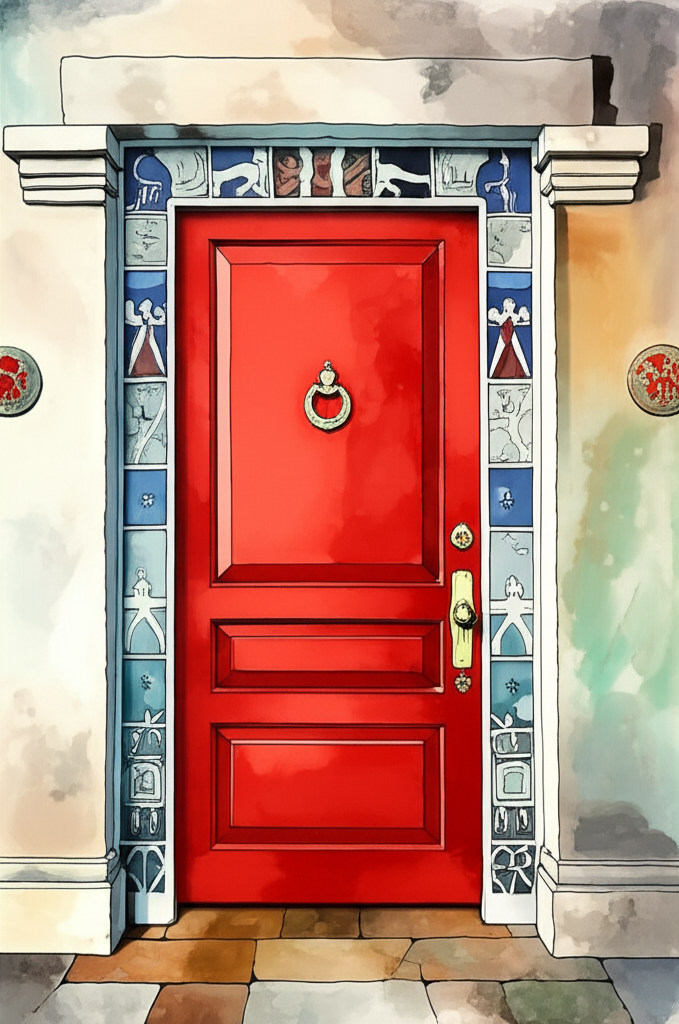
The belief that one should never leave a house through a different door than the one used for entry represents a long-held superstition deeply rooted in folklore and cultural beliefs surrounding the home as a protected space. This tradition emphasizes the door’s significance not merely as a portal but as a symbolic threshold guarded against negative influences.
Historically, the door has held a special status as the entry point to the private world of the home. Since the earliest dwellings, talismans and protective symbols have been placed on doorframes to ward off evil. This practice continues today with good-luck tokens like horseshoes, sacred statues, and Chinese feng shui symbols adorning front doors across various cultures. In China, for instance, doors are often freshly painted with auspicious red paint before the New Year to attract good fortune and happiness to the household, demonstrating the enduring importance of the door in maintaining domestic well-being.
The origins of these protective measures lie in the ancient belief that humanity was perpetually threatened by malevolent forces. In ancient times, these forces were embodied by fearful deities like Set (or Seth), the demon of death in Egyptian mythology, or the monstrous Typhon in ancient Rome. During the Middle Ages in the Western world, the Devil was a pervasive figure, influencing daily life and held accountable for the misfortunes experienced in an era when life expectancy was significantly lower. Evil spirits, in the guise of sprites, fairies, or demonically possessed animals, were thought to lurk in every shadow, necessitating the fortification of the home against these destructive entities. The front door served as the primary line of defense.
Consequently, entering a house for the first time through the back door was deemed unlucky, as it was considered less protected against evil spirits. To prevent visitors from inadvertently carrying away the homeowner’s luck and protection, they were traditionally asked to exit through the same door they entered. This practice reinforces the idea that the entry point is specifically blessed or guarded, and deviating from it could disrupt the established balance of protection.
Furthermore, doors were perceived as representations of less tangible barriers, particularly those concerning the cycle of life and death. Following a death in the house, doors were opened to facilitate the departure of the spirit, and during a birth, they were opened to welcome the soul of the newborn. This reinforces the door’s role as a symbolic passage for significant life events, further solidifying its cultural importance and the superstition surrounding its proper usage.
In modern interpretations, while the belief in malevolent spirits may have diminished for some, the superstition persists, often reinterpreted as a matter of respecting the flow of energy within the home. Leaving through a different door can be seen as disrupting this energy flow, potentially leading to imbalance or misfortune. Even without a strong belief in the original folklore, many people still adhere to the custom out of habit or a sense of tradition, demonstrating the enduring power of this ancient superstition.